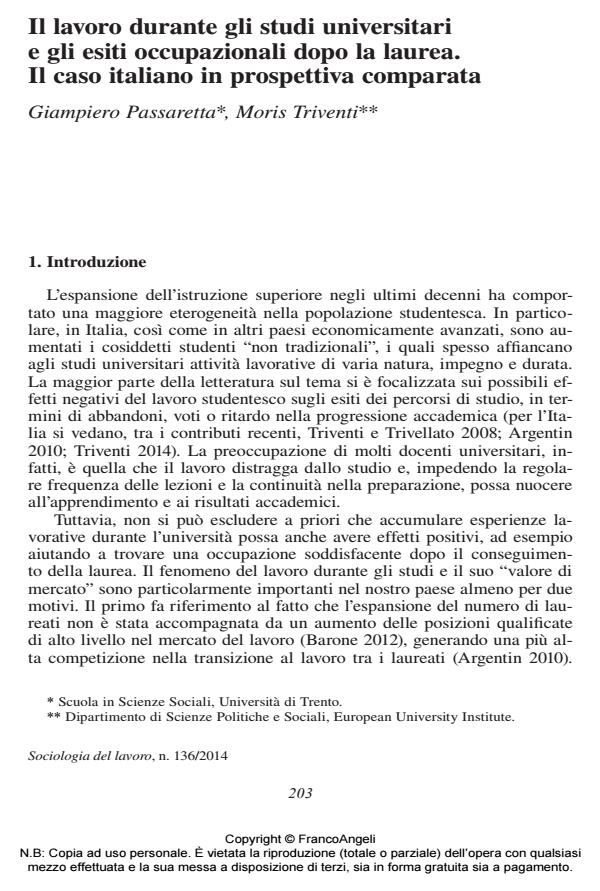Having a job during the University and the employment outcomes after graduation. The Italian case in comparative perspective
Journal title SOCIOLOGIA DEL LAVORO
Author/s Giampiero Passaretta, Moris Triventi
Publishing Year 2014 Issue 2014/136
Language Italian Pages 18 P. 203-220 File size 208 KB
DOI 10.3280/SL2014-136011
DOI is like a bar code for intellectual property: to have more infomation
click here
Below, you can see the article first page
If you want to buy this article in PDF format, you can do it, following the instructions to buy download credits

FrancoAngeli is member of Publishers International Linking Association, Inc (PILA), a not-for-profit association which run the CrossRef service enabling links to and from online scholarly content.
The article examines the relationship between work experience during higher education and employment outcomes in four European countries: Italy, Spain, Germany and Norway. In the first part a theoretical framework clarifies the reason why in some institutional contexts work experience during the University constitutes a ‘competitive advantage’ for young graduates. The empirical analysis - based on the surveys Reflex and Cheers - examine the effects of work experience (which account both the duration and the consistency with respect to the course of study) on different employment outcomes after 4-5 years of the degree. The empirical results show that in Italy and Spain having a job during the University is associated with better employment outcomes after the period of study: any kind of work experience increases the probability of being employed and reduces the risk of unemployment, while only work experiences consistent with the course of studies reduce the risk of being overeducated. In Germany and Norway instead, having a job during the University has no substantial effects in terms of employment outcomes.
Keywords: Student employment, work experience, labour market transition, undergraduates’ employment, higher education
- Fostering employment match? Graduates’ internships and early professional experiences between individuals’ choices and institutional constraints Sara Romanò, Tiziana Nazio, in International Journal of Sociology and Social Policy /2025 pp.394
DOI: 10.1108/IJSSP-10-2024-0498
Giampiero Passaretta, Moris Triventi, Il lavoro durante gli studi universitari e gli esiti occupazionali dopo la laurea. Il caso italiano in prospettiva comparata in "SOCIOLOGIA DEL LAVORO " 136/2014, pp 203-220, DOI: 10.3280/SL2014-136011